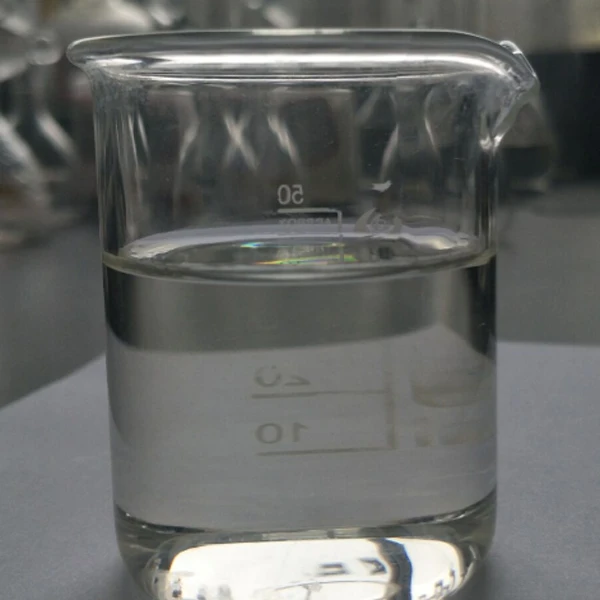
News
אוק . 13, 2024 11:29 Back to list
Supplier of Chelated Micronutrients for Enhanced Fertilizer Efficiency and Crop Growth
Understanding the Importance of Chelated Micronutrients in Fertilizers A Supplier's Perspective
As the global agricultural landscape evolves, the demand for high-quality fertilizers has intensified. Among the various types of fertilizers available in the market, chelated micronutrients have gained significant attention due to their essential role in promoting plant health and enhancing crop yield. Suppliers of these specialized fertilizers are pivotal players in ensuring that farmers have access to the micronutrients necessary for sustainable agricultural practices.
What are Chelated Micronutrients?
Chelated micronutrients are trace elements that are chemically bonded to organic molecules, which improve their solubility and availability to plants. Essential micronutrients, including iron (Fe), zinc (Zn), manganese (Mn), copper (Cu), boron (B), and molybdenum (Mo), are crucial for various physiological and biochemical processes in plants. Traditional methods of applying these nutrients, such as in their unchelated forms, often result in poor uptake due to soil interactions and immobility. Chelation enhances the stability and solubility of these nutrients, ensuring that plants can absorb them more effectively.
The Role of Suppliers
Suppliers of chelated micronutrients play a critical role in the agricultural supply chain. They are responsible for sourcing high-quality raw materials, manufacturing effective fertilizers, and distributing these products to farmers and agricultural businesses. The capabilities of a supplier can directly influence the quality and effectiveness of the fertilizers they provide. A reliable supplier must ensure that their chelated micronutrient products undergo rigorous testing and meet industry standards to guarantee efficacy and safety.
In addition to product quality, suppliers must also stay updated on evolving agricultural practices and the specific needs of different crops. This entails investing in research and development to enhance current formulations and create new products that meet the demands of modern agriculture. For instance, understanding the specific micronutrient deficiencies in various soil types allows suppliers to tailor their products accordingly, ensuring optimal plant health and yield.
Benefits of Chelated Micronutrients
1. Improved Nutrient Uptake Chelated micronutrients significantly enhance the absorption of essential elements by plants. This is particularly important in soils where specific micronutrients are limited or where high pH levels render nutrients unavailable.
fertilizer chelated micronutrients supplier

2. Enhanced Crop Yield By ensuring that plants receive adequate nutrition, chelated micronutrients contribute to improved crop yield and quality. Higher yields not only boost the economic viability for farmers but also play a role in meeting the growing global food demand.
3. Reduced Environmental Impact The targeted delivery of nutrients minimizes waste and reduces the likelihood of nutrient runoff into waterways, promoting more sustainable agricultural practices. This eco-friendly approach is increasingly appealing to environmentally conscious consumers and businesses.
4. Versatile Application Methods Chelated micronutrients can be applied via various methods, including foliar sprays and soil applications, making them adaptable to different farming systems. This versatility allows farmers to incorporate them into their existing practices effortlessly.
Future Trends in Chelated Micronutrients
Looking ahead, the market for chelated micronutrients is poised for growth as more farmers recognize the importance of micronutrient management. Suppliers will need to adapt to changing agricultural technologies, such as precision farming, which rely on data to optimize nutrient application. Furthermore, advancements in formulation, such as the development of biodegradable chelating agents, may lead to even more sustainable practices.
The increasing global emphasis on organic farming and agroecology also opens up opportunities for suppliers to innovate products that cater to these markets. Education and awareness initiatives will be crucial in helping farmers understand the benefits of using chelated micronutrients and how they can fit into their overall fertility management programs.
Conclusion
As vital components of modern agriculture, chelated micronutrients represent a significant opportunity for suppliers, farmers, and the environment alike. The responsibility of suppliers extends beyond just providing products; they must also contribute to the knowledge base of the agricultural community and support sustainable practices that secure food production for future generations. With a commitment to quality, innovation, and education, suppliers of chelated micronutrients will play a key role in shaping the future of sustainable agriculture.
-
OEM Chelating Agent Preservative Supplier & Manufacturer High-Quality Customized Solutions
NewsJul.08,2025
-
OEM Potassium Chelating Agent Manufacturer - Custom Potassium Oxalate & Citrate Solutions
NewsJul.08,2025
-
OEM Pentasodium DTPA Chelating Agent Supplier & Manufacturer High Purity & Cost-Effective Solutions
NewsJul.08,2025
-
High-Efficiency Chelated Trace Elements Fertilizer Bulk Supplier & Manufacturer Quotes
NewsJul.07,2025
-
High Quality K Formation for a Chelating Agent – Reliable Manufacturer & Supplier
NewsJul.07,2025
-
Best Chelated Iron Supplement for Plants Reliable Chelated Iron Fertilizer Supplier & Price
NewsJul.06,2025
